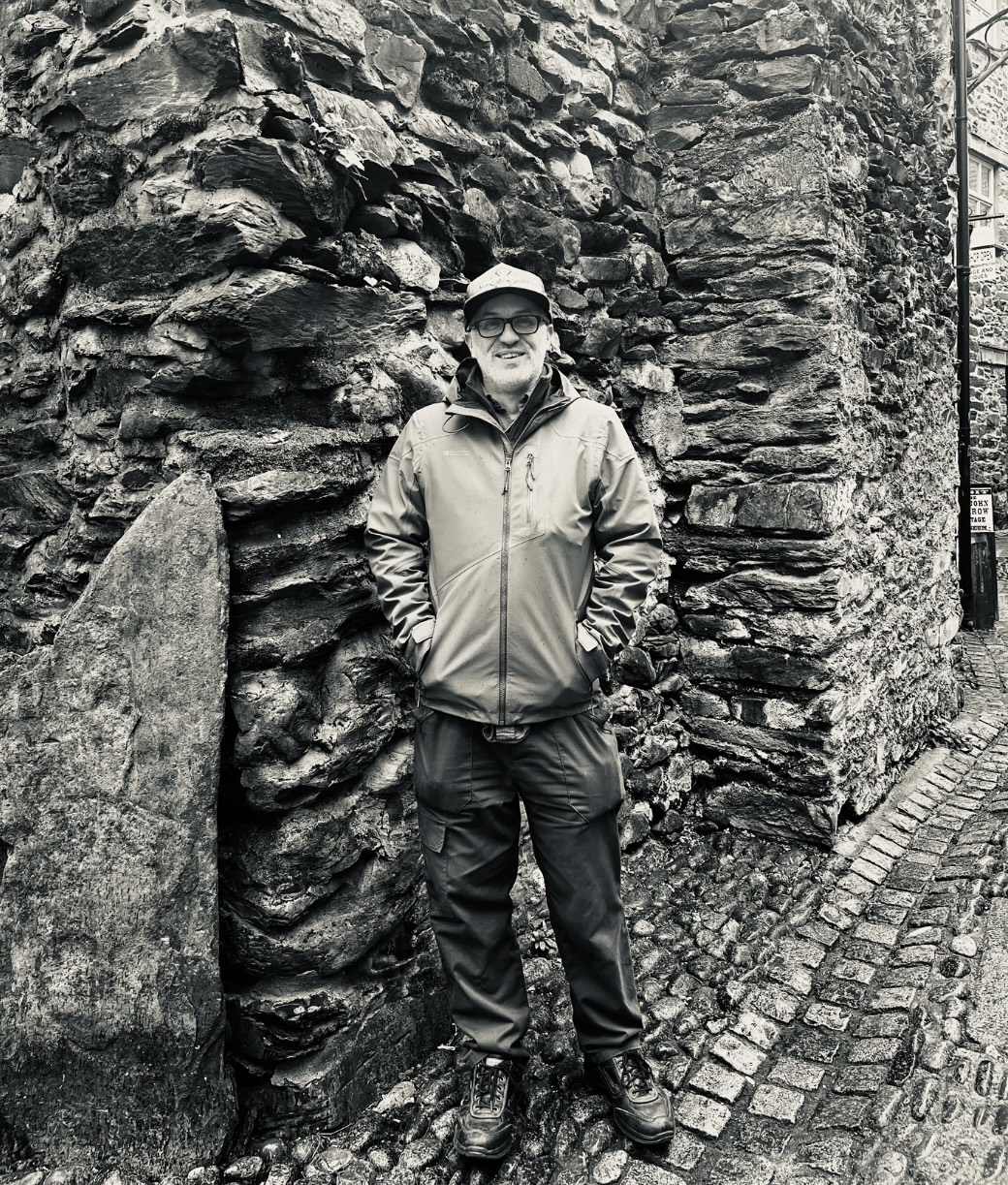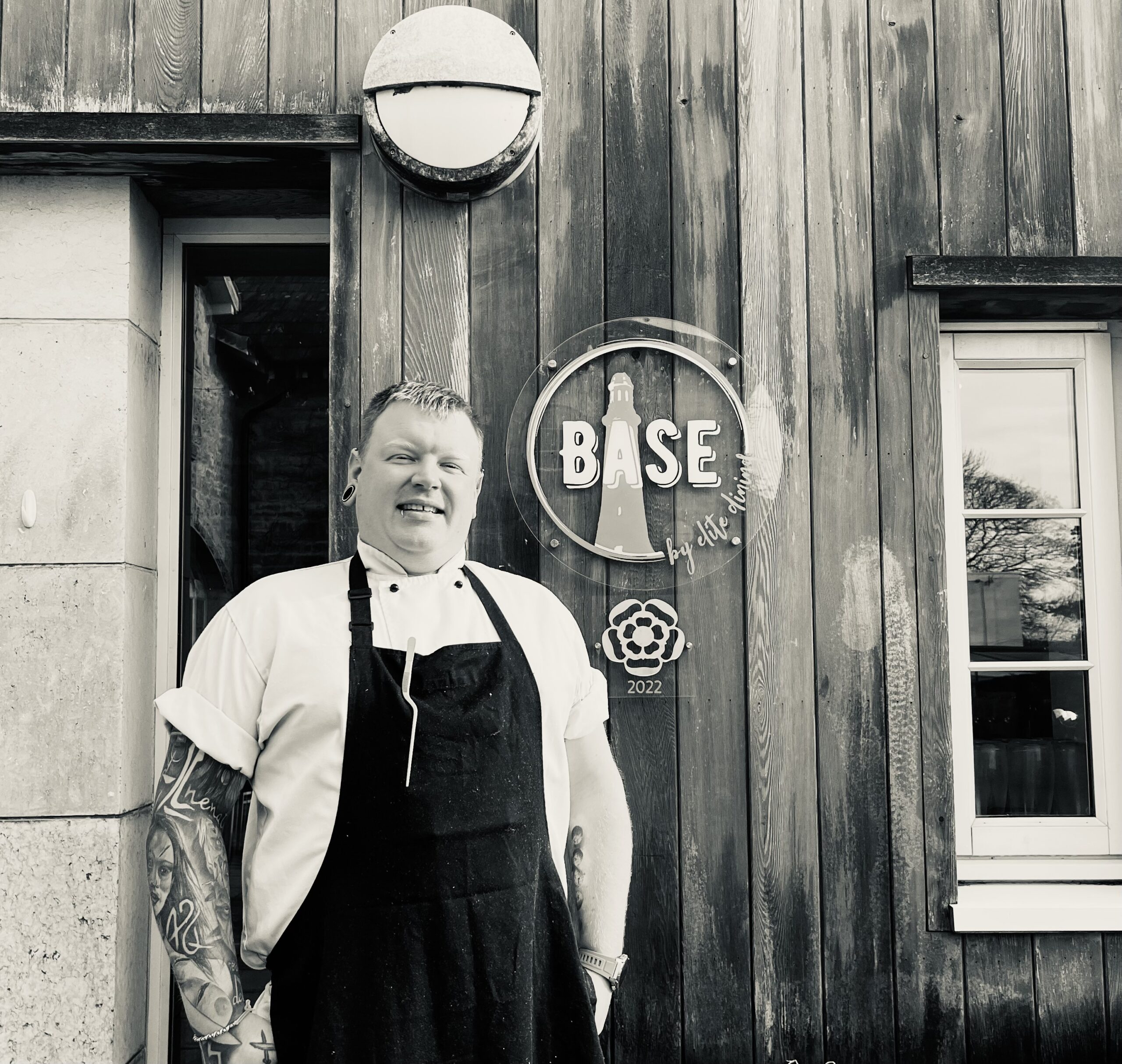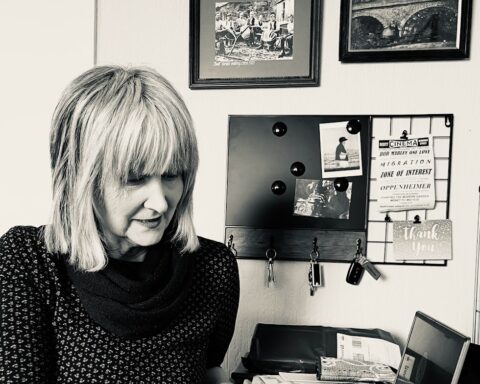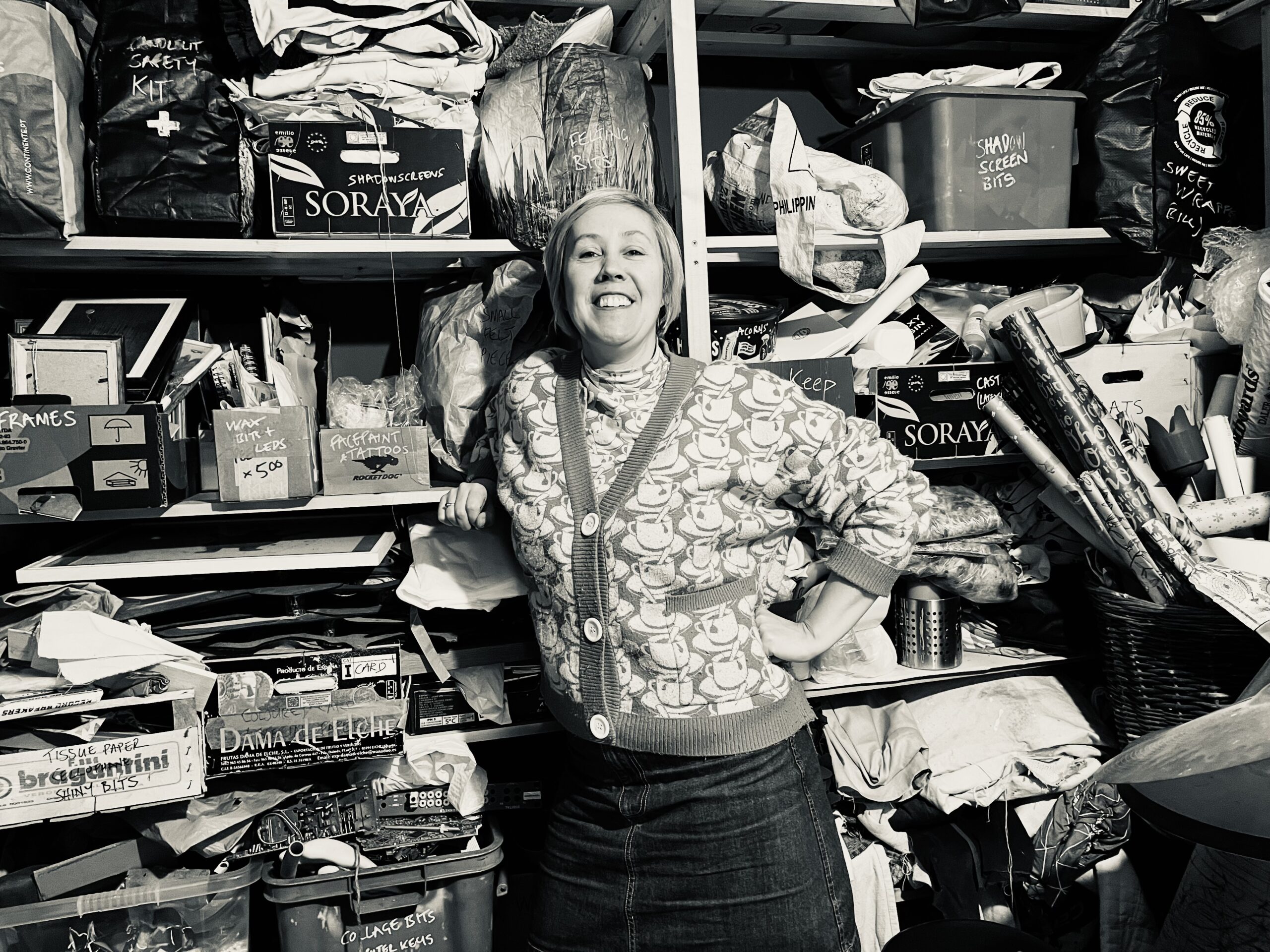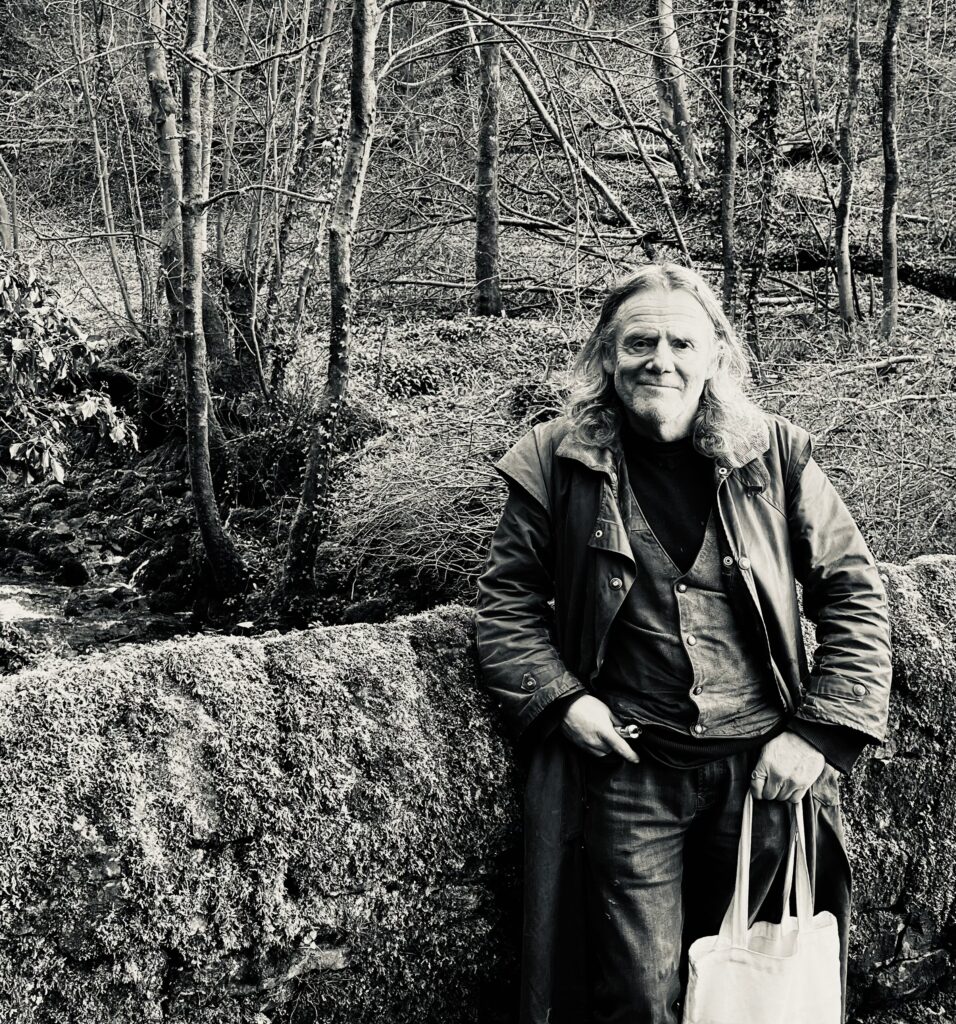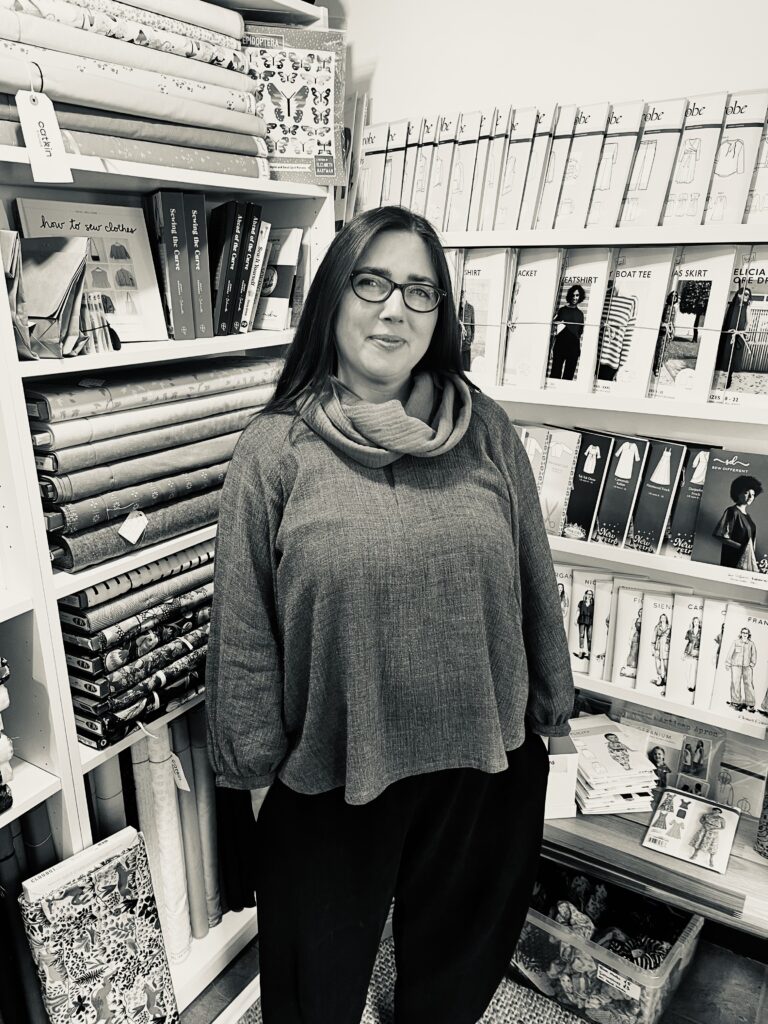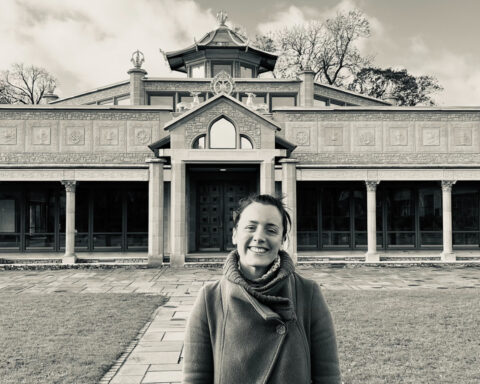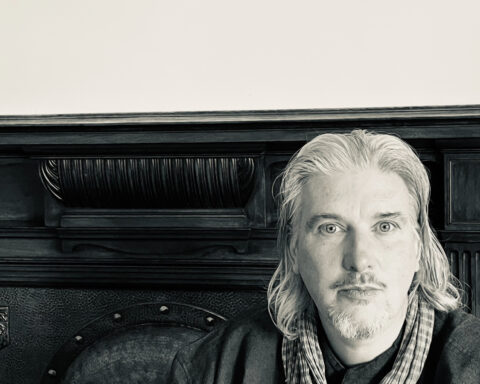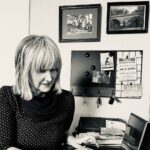|
Getting your Trinity Audio player ready...
|
TIU: Hi Dan! Tell us all about yourself and what you do…
D: I was born in Ulverston and I lived in Swarthmoor which at that time seemed like quite a detached settlement from Ulverston. Coming into town felt like you were coming to the big city although Swarthmoor still had some shops at that point I don’t know if it has now. I always had a distinct interest in the history of the local area and if I went anywhere I was always the one who wanted to go and see the castles. We would go to Greece and I would be the one wanting to see the ruins whilst everyone else sat on the beach. I was always interested in the history of this area, (which it has quite a lot of), and when I discovered that you could be an archaeologist as a job it sounded like the one for me. I went to university in Edinburgh and did a degree. Partly because there was someone who had done some work on the west coast of Cumbria up on the sites there and I was keen to study under him but when I got to university he wasn’t really doing that anymore he was looking at places in Romania. So I ended up going there – it was an opportunity that presented itself, something a bit different.
TIU: This was during your studies?
D: Yes, part of the degree involved a certain amount of field work every year. It was quite novel. Edinburgh was unusual because most places didn’t insist on it. You were expected to do six weeks of field work every year which was crazy really because nowadays I don’t think anyone would be able to afford it as much as anything else! It was nice to get the opportunity.
TIU: Does it still take you far and wide?
D: Not really – I mainly work in this area most of what I do now is related to planning applications so it’s quite regional and what I wanted to do. The travel at university was just because of the opportunity at the time. What I always wanted to do was come back and work in this area and study the archaeology of this area. The only way to do that and earn a living was to do it the way I do now which is dealing with the requirements of planning applications.
TIU: So you look at sites that are going to be developed?
D: Pretty much yes. When they put an application in they have to consider it alongside everything else. A lot of the time we go in and don’t find anything at all because that’s the nature of the job.
TIU: So it’s a good day for you when you actually do find something of interest?
D: It’s good from the point of view that it’s more interesting. If we don’t find anything at all its just massively boring. But if we find something the developer might get a little tetchy about it.
TIU: What if it is something like a hoard of Roman coins?
D: That would be relatively easy to deal with. We found an old bronze age cremation cemetery on one site in Allithwaite which was slightly problematic and involved a lot of work. It’s difficult because a lot of the sites we work at are not massive so if you find something it could cost them a lot of money. It’s quite a dent in their profits. Overall it doesn’t make much difference to them its just one of the things they are required to deal with. Most sites its something much more simple.
TIU: What is the most interesting thing you have ever found?
D: Probably in terms of local stuff, the cremation cemetery. What was bonkers about that site was that there was another one found in Allithwaite in similar circumstances where a housing estate was being built on the other side of the village. We were on the south side. The previous one they dug about ninety trenches – the first trench pretty much the first bucket they found these cremations. We dug ten trenches and in the first trench we found these cremations. The chances of it happening were just so slim. It was quite something to deal with, to get it all dug, excavated, written up, illustrated and published.
TIU: Which part of the job do you personally enjoy the most?
D: I think when you get something big like that and get it turned into a proper published thing that goes into an actual journal rather than just our reports, then that’s nice because it means that it’s out there for the general public to see. Every day is different, every week is different. That can make it difficult to keep up with routines – if I need something done in my house and I am not there I can’t be around all the time because I am off in a field somewhere in the rain.
TIU: You seem to have some good admin help?
D: I do quite a lot of the stuff but we have just taken someone else on to do more in the office so that’s made a big difference. We are only a small business so we don’t have vast resources to deal with things. We have started to diversify though, we now have a bookshop and a salvage / antiques section.
TIU: Why did you decide to branch out that way?
D: It came about because the old office was just round the corner from here on Theatre Street – tiny and didn’t have much space and we got too cramped in there. We went to look for a new place, wanting something in the town centre but everything we could find was a shop space. We didn’t need a shop but I thought, okay why don’t we open up in that way? I mean I’ve bought books for years I’ve always loved books. So we added a bookshop just for the sake of it. We have been there for ten years now which is pretty crazy.
TIU: What is the history of your current building?
D: Ironically the building was the old heritage centre. They did a lot of work re organising it for the heritage centre and then when that folded it was empty a while and then it was used by a fabric shop. Unfortunately they had painted everything purple so I’m stuck with that!
TIU: I quite like a purple wall!
D: The colour is fine but the carpet they put down is horrendous. We can’t remove the carpet because it’s stuck to the old carpet which is stuck to the floor. An absolute nightmare!
TIU: The shop has tons of character though and it’s my favourite place to get books in town. One of the quirky things about the buildings in Ulverston is that they often have several buckets on the shop floor catching the rain…
D: Ours was like that we had proper active leaking which has finally been sorted out. Its a great building that we have – the only problem is there is no parking nearby so getting stuff in and out is tricky but we manage it.
TIU: Do you have any favourite buildings or sites in Ulverston?
D: I am not sure in terms of individual things but as it is largely a Medieval town in origin, you can get a good sense of that if you walk up through Soutergate. In terms of individual buildings it’s tricky in terms of something you could actually visit. There are plenty of interesting buildings in Ulverston but they are private houses you can’t get into. So in terms of things you can see if you walk up Soutergate you will get a good view of this quite odd arrangement. A lot of medieval towns are very flat, all one level and all kind of crammed in in that classic medieval way. Soutergate is medieval but it’s bonkers because its running up such a steep hill. I think that’s typical of towns in this area having to deal with the awkward topography and having to fit themselves into an awkward space. It’s also weird that we have this thundering bypass that doesn’t bypass the town it actually goes through part of it and yet it means that the main town centre has survived quite well. A lot of places they messed around with roads in the town centre and it really impacted on them. We are quite lucky in Ulverston, really. If you go to a town like Kendal for example with the main road driving straight through the middle its absolutely chock a block usually.
TIU: Do you have any personal favourite areas or points of interest to share in Ulverston?
D: I’ve always lived on the north side of town but growing up in Swarthmoor I used to like to walk up to the higher ground. I went to school in Pennington so obviously very rural out in the countryside. Some of the lanes around there. Of course I hadn’t really appreciated until I moved into town, how convenient it is having Hoad on the doorstep – all that space to just wonder around and it’s no distance at all. I love the Lake District but you go to Windermere or Ambleside, its so busy, touristy, over developed. You come down here and you can walk up somewhere like Broughton Beck and you won’t see a soul. That’s how I think the Lake District would be before it got developed and became a tourist attraction. You can go all the way up to Eskdale, all up that west coast area and around the Duddon – to me that is what the Lakes must have been like fifty or a hundred years ago when people didn’t really come in great numbers. I love Keswick for example it’s one of my favourite places but it’s just so busy. And people are not really adventurous enough. They will go to Keswick, walk down to the Lake, walk around the Lake and then they’ll go home. If you go all the way to Rosthwaite you won’t see a soul there it’s absolutely beautiful. The nicest place on the planet…or maybe we don’t want to tell people about it!
TIU: At the moment I find myself Ulverston based mainly reliant on public transport. I get the train and the bus a lot…
D: I can remember when there were buses down to Gleaston but there hasn’t been one for years…
TIU: I am so sad that I can’t get a train directly to Abbotswood. I can get the bus to Rating Lane but to have a working station would be the best thing!
D: It would be nice if you could just get off at Furness Abbey it would be amazing wouldn’t it?
TIU: I am going to cycle back a bit and ask how long did it take you to get qualified as an Archaeologist?
D: Four years because it was in Scotland – you end up with an MA at the end of it.
TIU: And now your catchment area is mainly Cumbria?
D: Yes south end of the county and north Lancashire. Preston sometimes, Carlisle as well. I’m trying to do less travelling for work because its exhausting. The problem is that a lot of the time I work from building sites where everyone else is getting there at eight o clock in the morning so I have to be there at eight. In the middle of winter that’s absolutely horrendous. Especially to be outside all day soaking wet and covered in mud. I would do less and less if I could get away with it – the travel itself is fine but not when its six in the morning in the winter in the wind, rain and cold. People often assume we only work in the summer but we work all year round.
TIU: Do you have to search for projects?
D: People contact us – they have a requirement to get the work done so they find us. Like you would for anything else – an electrician for example. Same kind of thing just a bit more specialised. There aren’t that many companies doing it and you have to cover a big enough area to get enough work in. Its very hit and miss because it depends how the economy is doing and how buoyant building work is. At the moment we are doing housing estates – they are popping up all over the place. Eventually that will slow down because there won’t be enough money in it anymore.
TIU: For a long time when I was younger I wanted to be an archaeologist until I realised that it wasn’t all like an Indiana Jones film!
D: That’s the problem, I think a lot of people like the field work but not the writing of the reports. I quite like all of it really. There’s a certain amount of romanticism about how it works.
TIU: Do you have anywhere on an international level that interests you?
D: In terms of internationally it always seems a bit too much like treasure hunting – something like Pompeii – the stuff you get in Pompeii is incredible but it just feels too much like shooting fish in a barrel. Its obvious that you will find something so its not very challenging. I would like to go out and look at something that hasn’t been looked at before. That’s why I find this area interesting. So many things here that have never been looked at which we know about, or even the ones we don’t. I am always interested in finding new things. A lot of archaeologists will target sites we know about because they don’t want to waste their time. I am always more excited by the idea of looking at something that’s not been looked at, ideally something in this area, to further increase knowledge of what there is. There are lots of places but you have to figure out who owns the land and get permission. And of course the biggest problem is having endless sites I want to go and look at but having no means of funding it. If I won the lottery that’s what I would do. People assume that we are paid by the government. Since a lot of this stuff was privatised none of it is done by the government or the council. There are people on the council who deal with it from a planning point of view but they don’t go out and do the work. The way we earn a living is very much hand to mouth. Its not ideal sometimes. Sometimes we deal with developers who aren’t interested in any of it, they don’t want to pay for it and will go out of their way to do the minimum amount of work they can get away with. They want to get on with it and not have their profits dented. You can understand it but its difficult when you must work with them and they aren’t helpful.
TIU: I notice quite a few buildings in Ulverston that are in need of repair, conservation or some kind of sympathetic development but a lot seem to sit for years in the same state.
D: Its a problem. They talk about the need for housing and there’s housing being flung up on green field sites because it’s a lot easier for developers to do that. At the same time there’s endless reams of buildings sitting empty that could be made use of. Unfortunately its not possible to force people to do things with buildings unless they are unsafe. You end up with a world where the government could turn up on your doorstep and say you got to sort the building out and no one would want that.
TIU: In the city those buildings would have housed several raves and be urbexed to heck on tik tok by now…
D: Or squatted in…burnt down in a mysterious fire…
TIU: It’s a little bit of preserved ground that we have here in Ulverston. One of the reasons I moved back here, (there were many but one that was really prominent), was that its still relatively much safer and less developed than any other places I’ve ever lived.
D: You can see how much has been lost in other places – especially in city centres. There are often no ancient or old buildings left. All modernised. Some of the applications they put in for these insane developments where they go to an old building they have to preserve and then put a new massive building over the top of it!
TIU: I’ve seen that happen many times in Newcastle…
D: In a big city with massive blocks that’s inevitably going to happen. We have not had that in Ulverston. We have lost plenty of things though the 1960s were a terrible time in that respect. The damage that was done putting the main road through and Buxton Place car park was basically cleared of all the buildings that were there. We lost a lot of stuff then. The amount lost to roads and car parking is phenomenal not just here but everywhere.
TIU: It’s always sad to see Victorian postcards of places you know looking so much grander…
D: Its hard to recognise where those places even are nowadays. But even though Ulverston is quite preserved you can’t preserve everything. The thing about my job is that its presumed that I’m going to want to preserve everything and not want anything touched and that I am going to protect it all. We see enough stuff being demolished, flattened and dug up and that’s just life. You preserve what you can.
TIU: There’s a certain house in Ulverston that I love that is being privately developed now and losing all of the things that made it great – I have photos of it from 2014 because I’m kind of a house stalker and it looks so beautiful, so of its time. And appreciated by whoever had lived there previously.
D: I don’t understand the mentality of changing period buildings to the point of, why not just buy a new house? Its baffling. Its those detailed features that make it. I do a lot of work on listed buildings and its not appreciated that those details make the difference. Its very easy to remove a fireplace or decorative features like cornices but in doing so it completely destroys the character of the building. To some removing things is seen as improving them. That is the rule of all history isn’t it? People spending money like that because they can. As archaeologists we are very aware of that – things we see that were built to show off. Any number of prehistoric things that were built for power and influence. Massive stone circles or whatever.
TIU: Anything in Ulverston that is of particularly historic importance? Everyone loves the Roxy for example.
D: It’s great that The Roxy still exists. Its not so much individual things. Its easy to get hung up on particular things but one thing doesn’t make a whole anything. It is little details that make a massive difference. If you have an old building and you change all the windows to modern plastic ones it not only affects that building but also the one next door and in effect, the whole street. You could flatten entire buildings and build news ones and its less damaging. A lot of new things are built with reduced quality. With so little idea of design and a lot of it is very bland. Also pastiche builds with the wrong proportions and details. I would rather see something like the Ulverston Library – very much a building of its time – but the overall thing makes sense. Even if some would find it ugly. A pastiche Victorian library would have looked terrible. Design effort was put into it. Nowadays its boring boxes. When Victorians built railways stations they built amazing stone buildings with arches and incredible details. Nowadays modern industrial estates will just chuck up a shed.
You can contact Dan via his website Greenlane Archaeology
Greenlane also look after Sir John Barrow Cottage in Dragley Beck on behalf of the Council. It is open to visitors on Fridays 10am – 2pm and Sundays 1pm – 5pm.
